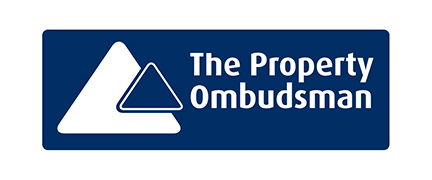The Renters ‘Reform’ Bill has been introduced in Parliament on 17th May 2023, bringing changes to the rental market. This new law is designed to make things easier, safer and fairer for people who rent their homes. It outlines plans to terminate section 21 and for periodic tenancies to become standard.
Current situation:
In England, the majority of tenancies in the private rental sector are known as assured shorthold tenancies (ASTs). Typically, these involve a fixed-term agreement where tenants are obligated to pay rent for a predetermined period.
Upon the conclusion of a tenancy, the landlord and tenant can choose to either renew the agreement for another specified period or transition to a rolling, periodic contract.
Currently, periodic contracts require tenants to provide one month's notice if they intend to end the tenancy. Conversely, landlords can terminate a periodic tenancy with two months' notice using section 21. This provision is often referred to as a "no fault" eviction, as landlords are not obligated to provide a reason for evicting a tenant.
However, the proposed bill aims to simplify existing rental arrangements. Instead of fixed-term tenancies, all rented properties will transition to a unified system of continuous contracts.
The bill outlines proposals to abolish section 21 ‘no-fault’ evictions. Under this new law, landlords will no longer be able to evict tenants without providing a reason.
The key elements of the Renters (Reform) Bill that landlords and tenants should be aware of:
- Abolition of section 21: ‘no fault’ evictions are in place, tenants are permitted to end agreements with no reason by giving a two months’ notice to their landlords. Its designed to target poor landlords and allowing tenants to remove themselves from difficult situations. Moreover, landlords now have additional grounds of possession under section 8 as well as an improved court process.
- Changes in landlord grounds of possession: A revised and improved section 8 will allow landlords to move themselves/family into a rental property or sell it. Along with the ability to regain possession from anti-social tenants or tenants in rental arrears. Most section 8 would become mandatory, meaning judges would have to rule in favour of landlords who are able to provide grounds for possession.
- Longer tenancies: The bill encourages landlords to offer longer tenancy agreements, which means you can stay in your rented home for a longer period of time if you want to. This gives you more stability and reduces the risk of having to move frequently.
- Rent Increases: The bill introduces rules to limit how much your rent can go up each year. Landlords won't be able to increase your rent as much or as often, providing you with more certainty about how much you'll be paying.
- Security Deposits: The bill puts a cap on how much money landlords can ask for as a security deposit. This helps to make renting more affordable by ensuring that the amount you need to pay upfront is reasonable and fair.
- Repairs and Maintenance: The bill strengthens your rights as a tenant when it comes to getting repairs done in your rented home. Landlords will have a responsibility to make sure your home is safe and in good condition, and they will need to address any maintenance issues promptly.
- Pets: The bill aims to make it easier for renters to have pets. Landlords will generally have to allow tenants to have pets unless there are exceptional circumstances, giving you more freedom to enjoy the company of a furry friend in your home.
Overall, the renters reform bill seeks to provide renters with more stability, better protection, and increased rights in their rented homes. It addresses key aspects such as tenancy duration, rent increases, security deposits, repairs, and pets.













